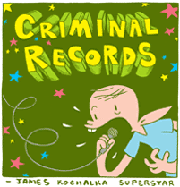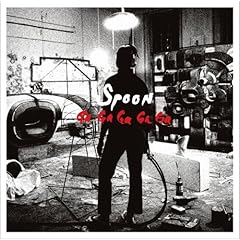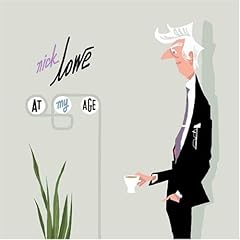 I've always had this theory (which is probably not especially original) that Zen Buddhism has the ability to reorganize one's neural pathways, which are, let's face it, established by one's experiences in life. It would seem that challenging one's understanding of those experiences and perhaps coming at them from a new angle would by definition require the formation of new branches in one's neural network. Of course, I could be totally wrong about this.
I've always had this theory (which is probably not especially original) that Zen Buddhism has the ability to reorganize one's neural pathways, which are, let's face it, established by one's experiences in life. It would seem that challenging one's understanding of those experiences and perhaps coming at them from a new angle would by definition require the formation of new branches in one's neural network. Of course, I could be totally wrong about this.The experimental San Francisco band Deerhoof in some strange way remind me of a Zen koan -- a statement used by zen practitioners that superficially makes no sense, but that is designed to shock the mind into awareness. I won't lie to you -- Deerhoof is not for everybody. If Deerhoof were an item on a sushi menu, it would have a little asterisk out to the side indicating that it is "challenging." And while avant garde is probably not the proper technical term for their music, this band definitely pushes the boundaries of conventional rock music.
Deerhoof's new album Friend Opportunity finds the band paired down to a trio and somewhat leaner and meaner than on its critically-acclaimed 2005 breakthrough The Runners Four. Friend is also unquestionably more accessible, interposing the band's signature dissonance and schizophrenic song structures with irresistible melodies. Japanese (ahem, to continue the zen and sushi theme) singer Satomi Matsuzaki's childlike and heavily accented vocals are still something of an acquired taste, and her lyrics can be decidedly fairy-tale, that is when you can understand what she's singing about. Nevertheless, this band works together like seasoned veterans of jazz improvisation, segueing from classically-inspired orchestration to flat-out rawk, often on a dime.
The record opens with what I consider to be a prototypical Deerhoof number, "The Perfect Me," in which the boys in the band rip the place to shreds while Satomi dances through a dainty little melody straight out of some magic garden. Another highlight is "Believe E.S.P.," in which the band settles into a nasty little blues groove that would make Los Lobos proud, before jettisoning into artsy improvisation. "The Galaxist" begins like a little Japanese lullaby and, after a quick heavy rock riff straight out of Ritchie Blackmore's playbook, hits its stride on a beautiful pop melody and guitar work in the chorus, which Satomi resolves by accurately suggesting that we "could be in a different galaxy." Indeed. Near the album's close, we get "Matchbook Seeks Maniac," which is easily one of Deerhoof's most conventional songs, and maybe one of the best indie-rock melodies of this young year.
Again, this is probably not for everyone, but if you're feeling adventurous, Friend Opportunity definitely rewards those who stick with it. In fact, Deerhoof just might change the way you think about popular music.
Check out "The Perfect Me" and "Matchbook Seeks Maniac."























